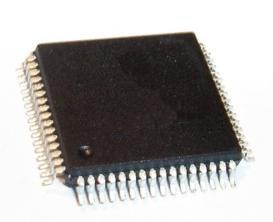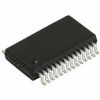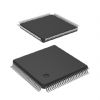CY7C09379: Features: • True dual-ported memory cells which allow simultaneous access of the same memory location• Six Flow-Through/Pipelined devices -32K x 16/18 organization (CY7C09279/379) -64K x...
floor Price/Ceiling Price
- Part Number:
- CY7C09379
- Supply Ability:
- 5000
Price Break
- Qty
- 1~5000
- Unit Price
- Negotiable
- Processing time
- 15 Days
SeekIC Buyer Protection PLUS - newly updated for 2013!
- Escrow Protection.
- Guaranteed refunds.
- Secure payments.
- Learn more >>
Month Sales
268 Transactions
Payment Methods
All payment methods are secure and covered by SeekIC Buyer Protection PLUS.

 CY7C09379 Data Sheet
CY7C09379 Data Sheet








